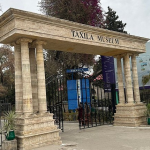Introduction
Registry and Inteqal are too unavoidable terms when it comes to buying, selling, or inheriting property, legal paperwork is a big deal. But there are two key processes without which property transfer is incomplete. These two processes are Registry and Inteqal.
Registry and Inteqal play a crucial role in property ownership. People who are new to real estate may confuse them as the same, but they are two entirely different kinds of transfer. You must know their purposes and differences to avoid any legal troubles while dealing with Resgistry and Inteqal.
Let’s learn the difference between them.

What is Registry
Definition & Legal Importance of Registry
Registry is the official stamp of approval on a property deal. It’s the legal process of registering a property with the government to confirm ownership. Once registered, the buyer becomes the rightful owner, and the property is legally recognized under his name.
Why is Property Registration Necessary?
Why is this tedious and lengthy process necessary? The answer is really simple. Property registration doesn’t only ensure the transfer, but it also:
- Proves legal ownership
- Prevents fraudulent sales
- Helps in future transactions like resale or inheritance
How is a Property Registered?
Here’s a step-by-step breakdown of the process:
- Drafting a Sale Deed: First, you need a legal document created between the buyer and seller.
- Paying Stamp Duty & Registration: Before going any further, you must pay stamp duty and registration fees because government charges must be cleared.
- Verification by the Sub-Registrar: Then you need to get Legal documents checked and approved by relevant authorities to make it even more legal.
- Issuance of the Registered Deed: After the verification, the ownership is officially recorded and acknowldged.
Documents Required for Registry
To complete the registration, you’ll need:
- Sale Deed (proof of purchase)
- Identity Proofs (buyer and seller)
- Property Tax Receipts
- Encumbrance Certificate (shows no legal disputes)
Advantages of Registry
- Legal Ownership: Provides official proof of property rights and acknowledges the ownership.
- Reduces Disputes: It helps avoid legal conflicts in the future
- Simplifies Resale & Transfer: It also ensures smoother transactions at every step.
What is Inteqal?
Definition & Legal Background
Inteqal, also called Mutation of Property. It is a process that updates government land records after a property changes hands. Unlike Registry, which legally proves ownership, Inteqal ensures the government’s tax and land revenue records reflect the new owner.
Why is Inteqal Important?
Updating records through Inteqal is essential because it:
- Ensures the right person is taxed
- Prevents future ownership disputes
- Legally records property inheritance cases

How to Apply for Inteqal?
The mutation process involves:
- Filing an Application: The new owner submits a request at the local revenue office.
- Verification by the Patwari: Then, a land records officer checks and verifies the transfer.
- Updating Land Records: Afterwards the government officially records the new owner’s name.
- Documents Required for Inteqal
If you want to apply for Inteqal, you’ll need:
- Copy of the Sale Deed (proof of transaction)
- Death Certificate (for inheritance cases)
- Property Tax Receipts (to show ownership)
Key Benefits of Inteqal
- Correct Taxation: Inteqal ensures that property taxes are billed to the right owner
- Avoids Ownership Conflicts: It eliminates confusion over land records
- Essential for Inheritance: It helps legal heirs claim rightful ownership
Key Differences Between Registry and Inteqal
| Feature | Registry | Inteqal |
|---|---|---|
| Purpose | Legal proof of ownership | Updates revenue records |
| Mandatory? | Yes, for all transactions | Yes, for taxation & inheritance |
| Who Approves It? | Sub-Registrar’s office | Revenue Department |
| When Required? | At the time of sale/purchase | After sale or inheritance |
When Do You Need Registry vs. Inteqal?
Buying a Property? First, Registry to prove ownership, then Inteqal to update records.
Inheriting Property? Inteqal is a must to transfer ownership to heirs.
Selling a Property? A registered Sale Deed is required, and Inteqal helps in a smooth transfer.
Common Myths About Registry and Inteqal
Myth: Registry alone is enough for legal ownership.
Fact: Inteqal is required for official government records.
Myth: Inteqal automatically updates after Registry.
Fact: Inteqal must be applied for separately.
How to Avoid Legal Issues in Property Transfers
- Double-check all documents before buying property.
- Ensure both Registry & Inteqal are completed.
- Consult a legal expert for complex transactions.
Conclusion
Understanding the difference between Registry and Inteqal can save you from legal headaches. While Registry officially proves ownership, Inteqal ensures the government records reflect the new owner. Completing both is essential to avoid disputes and tax issues.
FAQs
1. Is Inteqal mandatory after Registry?
Yes, to update government land records and pay taxes correctly.
2. How long does Registry take to complete?
It usually takes 7 to 30 days, depending on the region.
3. Can a property be sold without Inteqal?
Yes, but the buyer must complete Inteqal after purchase to avoid complications.
4. What happens if Inteqal is not done?
The previous owner’s name remains in records, which can cause legal issues in the future.
5. How much does property registration cost?
It varies by location but generally includes stamp duty + registration fees.







